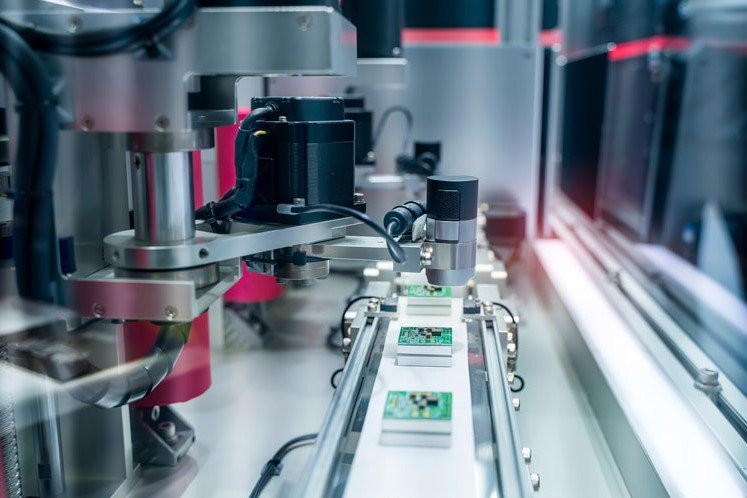Georgia is about to get a manufacturing boost — and not just any kind. A South Korean company’s U.S. arm will pump more than $200 million into a rare earth magnet facility in Columbus, making it one of the largest investments of its kind in the Southeast.
Big Bet on Columbus
Gov. Brian Kemp’s office confirmed the deal: JS Link America, the U.S. subsidiary of Korea’s JS Link, will spend $223 million to build the plant by 2027.
The project is expected to create more than 520 jobs in Muscogee County. Wages won’t be modest either. The average annual pay is forecast at $89,000 — nearly double Georgia’s median household income.
“This is about putting Columbus on the map,” said Missy Kendrick, president and CEO of Choose Columbus, the city’s economic development arm. She added that the combination of good-paying jobs and global supply chain importance could transform the region’s outlook.
Rare Earth Magnets: Why They Matter
Rare earth magnets might sound niche, but they’re everywhere — in smartphones, wind turbines, electric vehicles, and advanced defense systems. Without them, the clean energy transition and modern military hardware would stall.
For years, China has dominated this market. That’s triggered alarm in Washington and among U.S. allies, especially as geopolitical tensions deepen. Investing in facilities like Columbus’s helps shift dependence away from Beijing.
Global Intelligence firm Adam Smith Data estimated demand for rare earth magnets will nearly double by 2030, driven by surging EV production and renewable energy storage. That demand surge has governments scrambling.

Breaking Down the Numbers
JS Link’s plant is designed to churn out magnets at an industrial scale.
| Category | Planned Output |
|---|---|
| Facility Size | 3.1 million sq. ft. across 353 acres |
| Annual Capacity | Hundreds of millions of magnets |
| Timeline | Fully operational by 2027 |
| Jobs | 520+ new roles |
| Avg. Wages | $89,000 per year |
Executives say the factory will be able to expand over time, leaving room for future growth as demand climbs.
A Value Chain Built on Allies
JS Link America CEO Jun Lee emphasized that the plant isn’t just about economics. It’s also about geopolitics.
He said the company is committed to creating “a value chain focused entirely on Western nations to meet the growing demand for permanent magnets sourced from strategic allies such as Korea.”
That’s no small statement. In an era where the U.S. and China trade barbs over tariffs, supply chains, and technology security, Columbus suddenly finds itself at the center of a geopolitical chessboard.
Tariffs, Tensions, and Timing
Timing couldn’t be sharper. Just last month, President Donald Trump’s administration pushed new tariffs on Chinese imports, stoking worries of another trade war.
Magnets are one of the most vulnerable sectors in this fight. They’re critical for industries ranging from cars to defense tech. By bringing production stateside with Korean partners, the U.S. reduces leverage China holds over critical supply chains.
“Having a domestic facility doesn’t solve everything,” one Washington trade analyst said, “but it gives the U.S. options it simply didn’t have before.”
Local Leaders See More Than Jobs
For Columbus, this project isn’t just about jobs and paychecks. It’s about reshaping the city’s identity.
Economic leaders note that major universities and engineering programs in the region will feed talent directly into the plant. Kendrick called the company’s “business-friendly approach” a perfect fit for Georgia.
Residents see it differently too. “This isn’t just another warehouse or call center,” said a local teacher. “It’s high-tech, it’s global, and it says Columbus can compete.”
From Savannah to Columbus: A Manufacturing Arc
Georgia has quietly become a hub for international manufacturers. Hyundai’s massive EV plant near Savannah is already making waves. Kia and SK Battery America have expanded in West Point and Commerce. Now Columbus joins the list.
It signals a broader arc: foreign investment targeting Georgia’s logistics, workforce, and strategic location.
But Columbus’s case is unique. This isn’t cars or batteries. It’s magnets — the unseen backbone of nearly every modern technology.
What Comes Next
Construction will stretch over the next two years, with production slated to begin by 2027. Officials say recruitment for jobs will start well before then, giving local schools and workforce agencies time to prepare.
JS Link has also hinted at potential expansions if market demand climbs faster than expected. “Once we’re up and running, there’s room to grow,” Kendrick noted.
For now, the $223 million plant stands as both a regional economic jolt and a global strategic statement. Columbus, once known mostly for its military base and textile history, is stepping into a very different spotlight.
